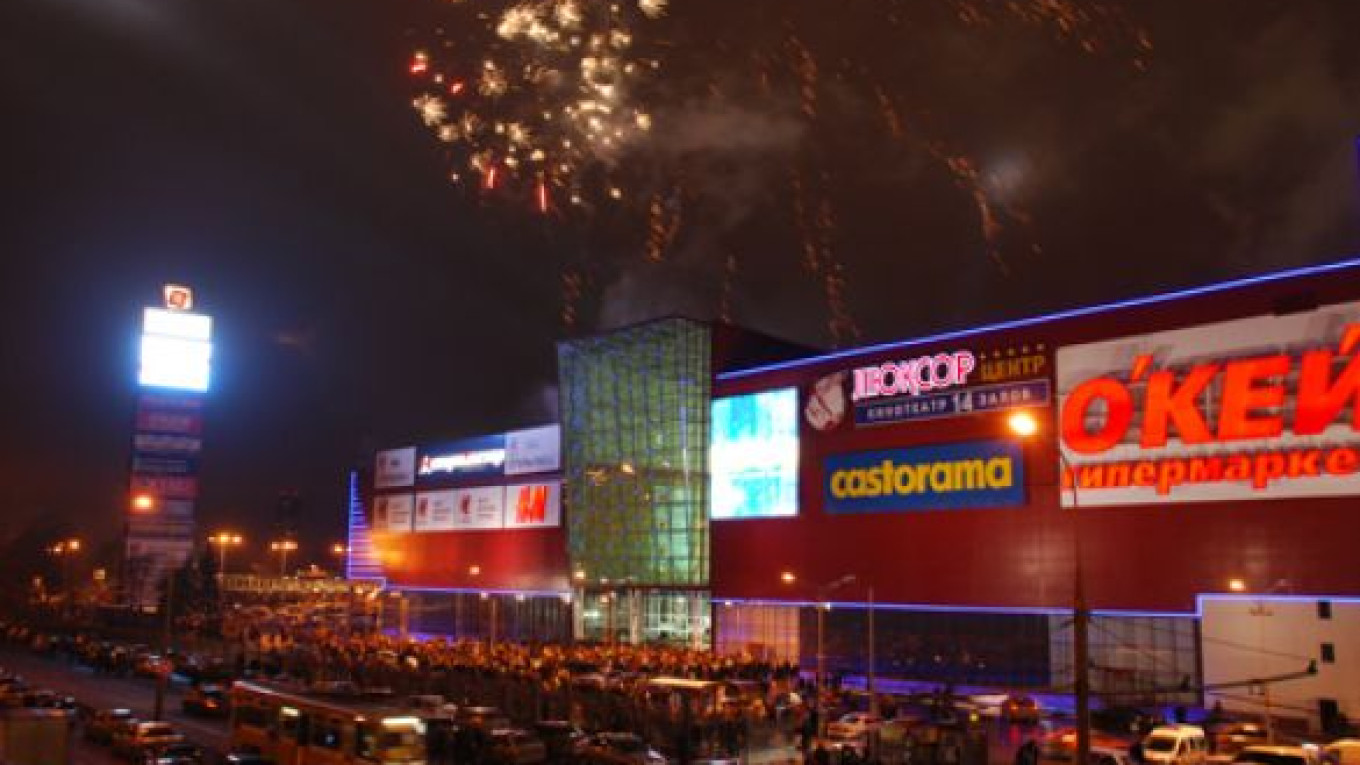Buyers continue to show eagerness to snap up fancy offices, hotels and malls in Russia, and though commercial real estate investment won't reach last year's historic high, it could surpass $6 billion, analysts say.
This year's level of investment, which is measured in purchases of buildings by other real estate players, is already more than $2 billion, according to various estimates.
Jones Lang LaSalle puts the amount for the first half of 2012 at $2.4 billion, while fellow real estate consultancy Knight Frank Russia & CIS said the deals closed in the first six months equal $3 billion.
Including the $1.1 billion sale of St. Petersburg's Galeria shopping complex — a deal that was supposed to close in January, Bloomberg reported at the time — Cushman & Wakefield gives the first-half figure as $4.18 billion.
This year's big transactions include Russian real estate investor O1 Properties' purchase of Ducat Place III, the Class A office tower at 6 Ulitsa Gasheka, from U.S. developer Hines for about $370 million, said Tom Devonshire-Griffin, head of capital markets for Jones Lang LaSalle Russia and CIS.
Immofinanz Group bought a 50 percent stake in Zolotoi Vavilon, or Golden Babylon, a 450-store shopping center in Moscow, for more than $500 million, according to information from Cushman and Knight Frank.
Also among the deals is Bin Group's purchase of the Summit office complex on Tverskaya Ulitsa and other properties for about $980 million, according to Jones Lang LaSalle.
Despite the hefty figures, deal volume so far this year has been substantially lower — perhaps by nearly half — compared with the volume in the first six months of 2011.
Investment transactions tapered off in the first quarter because of European debt malaise, a respite after year-end deal-making, and a wait-and-see attitude among Russian buyers because of the March presidential election.
International investors weren't deterred, Devonshire-Griffin said, because "they want to see stability." Barring a change in government or tax policies, they take the approach that politics "is what it is" here, he said.
Views differed on the liquidity needed for major investments.
"We do have the availability of finance, which is key to Russian deals," Devonshire-Griffin said, given that they are typically huge transactions that require the parties to seek out loans.
Russia's VTB, Sberbank and Alfa Bank are the most active lenders, he said. Foreign institutions Raiffeisen, UniCredit and Aareal Bank are also engaged in the market.
Alexei Filimonov, general director of real estate adviser Astera, called project financing "more like mythology than reality." He did point to Sberbank and VTB as relatively active lenders.
Compared with last year's $7.5 billion in overall investment, excluding the Galeria deal, this year's haul is expected to be about $5 billion, said Olga Yasko, regional director for analysis and market research at Knight Frank Russia and CIS.
Somewhat higher is the 2012 estimate from Jones Lang LaSalle, which is $6.5 billion.
"We will get very close to last year's volume," said Alexander Zinkovsky, a senior research analyst at Cushman. The firm expects investment volume to be $7 billion.
"There is demand, and there is supply," Zinkovsky said.
He said investors are seeking Class A and Class B offices, Class A warehouse space with modern technologies and shopping centers with a mall concept and interior design.
Many analysts said Europe's debt crisis has weighed down the market.
"The significant factor in investment is the general economic situation in both Russia and in the world at large," Yasko said. "Further development [of the market] will depend greatly on the resolution of the European Union situation."


